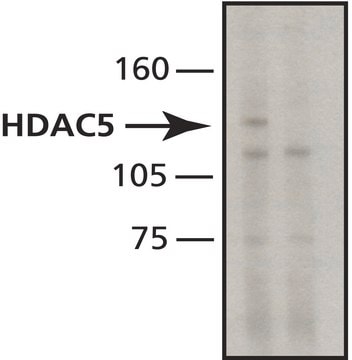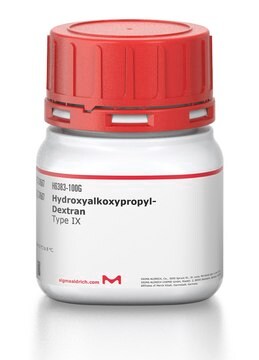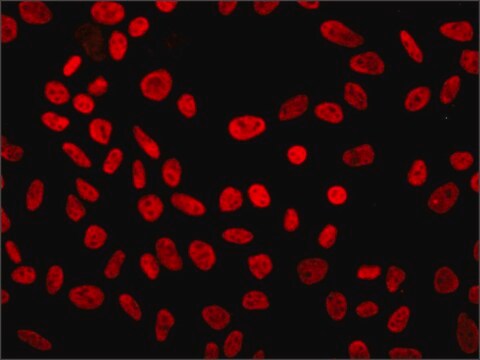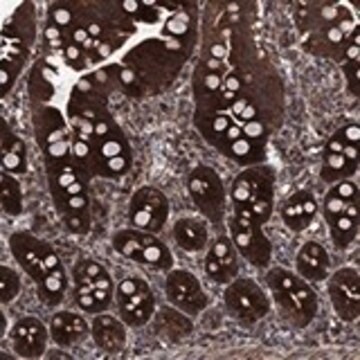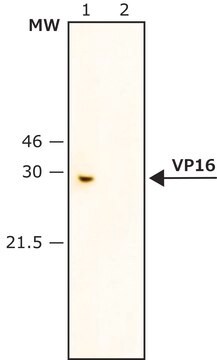H9411
Anti-Histone Deacetylase 4 (HDAC4) (ML-19) antibody produced in rabbit

affinity isolated antibody, buffered aqueous solution
Sinónimos:
Anti-AHO3, Anti-BDMR, Anti-HA6116, Anti-HD4, Anti-HDAC-4, Anti-HDAC-A, Anti-HDACA
About This Item
Productos recomendados
biological source
rabbit
conjugate
unconjugated
antibody form
affinity isolated antibody
antibody product type
primary antibodies
clone
polyclonal
form
buffered aqueous solution
mol wt
antigen ~140 kDa (additional weaker bands may be present)
species reactivity
rat, human, mouse
enhanced validation
independent
Learn more about Antibody Enhanced Validation
technique(s)
immunoprecipitation (IP): 10-20 μg using RIPA extract of HeLa nuclei
indirect immunofluorescence: 1:250 using HeLa cells
microarray: suitable
western blot: 1:1,000 using whole extracts of mouse NIH3T3 cells
western blot: 1:500 using whole extracts of rat brain
UniProt accession no.
shipped in
dry ice
storage temp.
−20°C
target post-translational modification
unmodified
Gene Information
human ... HDAC4(9759)
mouse ... Hdac4(208727)
rat ... Hdac4(363287)
Categorías relacionadas
General description
Immunogen
Application
- immunoblotting
- immunoprecipitation
- immunofluorescence
- immunostaining
- immunohistochemistry
- chromatin immunoprecipitation
Biochem/physiol Actions
Physical form
Disclaimer
Not finding the right product?
Try our Herramienta de selección de productos.
Storage Class
12 - Non Combustible Liquids
wgk_germany
nwg
flash_point_f
Not applicable
flash_point_c
Not applicable
Certificados de análisis (COA)
Busque Certificados de análisis (COA) introduciendo el número de lote del producto. Los números de lote se encuentran en la etiqueta del producto después de las palabras «Lot» o «Batch»
¿Ya tiene este producto?
Encuentre la documentación para los productos que ha comprado recientemente en la Biblioteca de documentos.
Nuestro equipo de científicos tiene experiencia en todas las áreas de investigación: Ciencias de la vida, Ciencia de los materiales, Síntesis química, Cromatografía, Analítica y muchas otras.
Póngase en contacto con el Servicio técnico